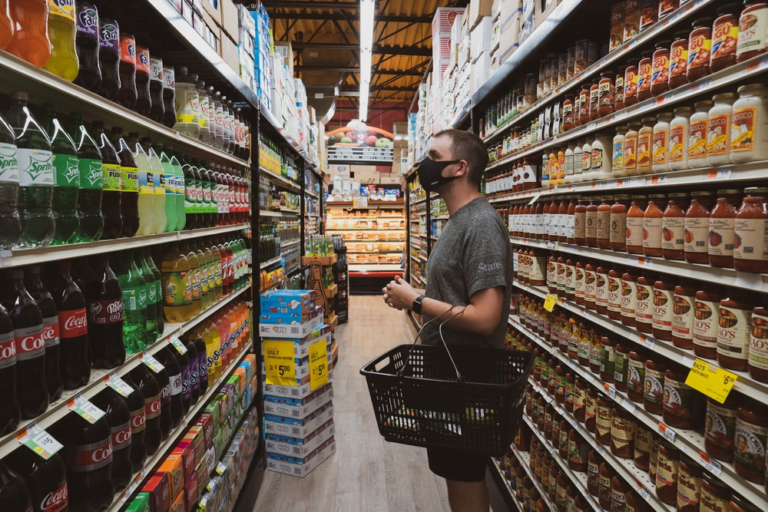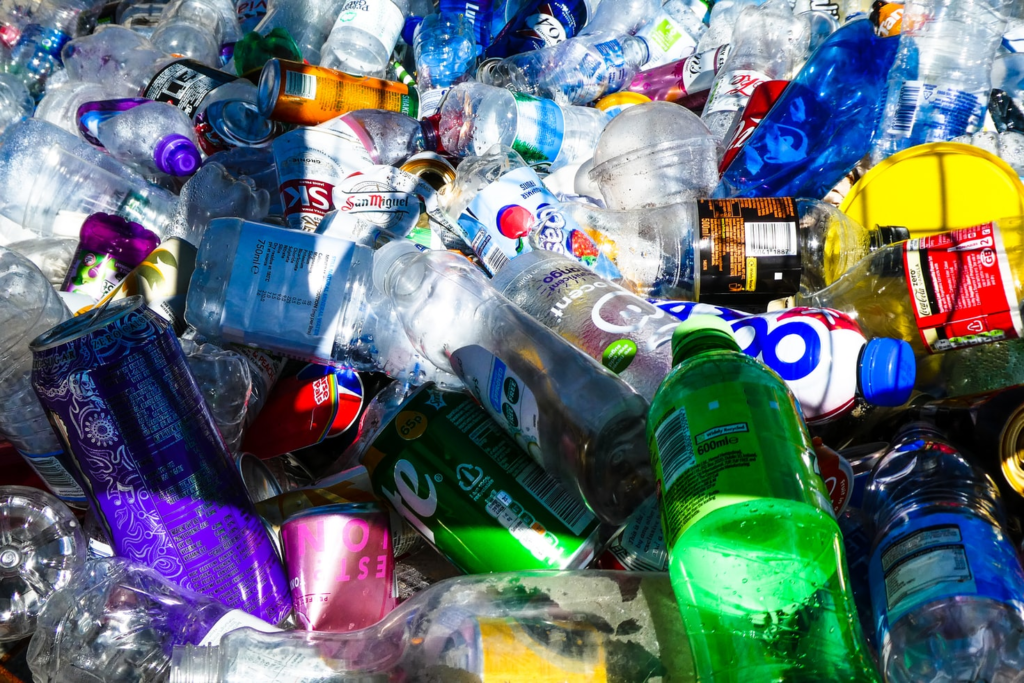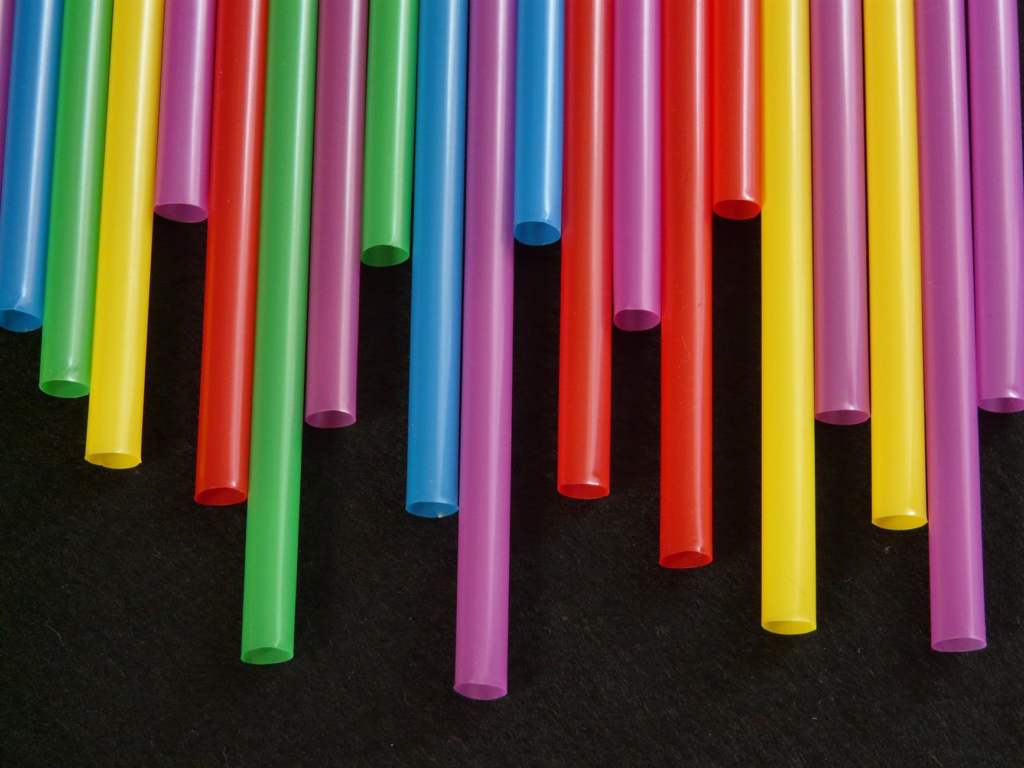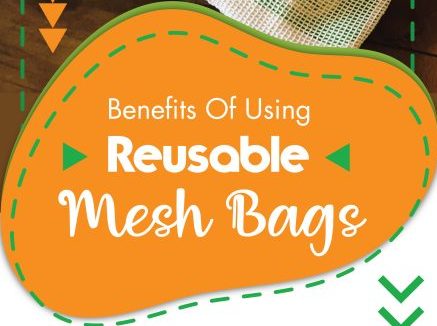
5 Benefits of Using Compartment Shopping Bags
Are you fed up with regular shopping bags? Here are some benefits of compartment shopping bags that’ll compel you to purchase them!
There’s no exaggeration that plastic pollution has become one of the most pressing environmental issues in the world today.
Though plastics haven’t been around for a long time, they’ve already impacted our environment and accelerated climate change. That’s because every day we’re seeing rapidly increasing production of single-use disposable plastics like saran wrap or plastic shopping bags.
In fact, globally we manufacture at least 300 million tons of plastic every year. So, it’s no surprise that the world has a plastic waste problem— especially when recycling is more expensive than manufacturing plastic.
Plastic pollution is such a pressing problem that there have been recent efforts to make a global treaty to tackle the issue.
But how can regular people make a change toward a better world for future generations? Keep reading for tips on how you can help curtail plastic pollution today.
Currently, the world houses more than 9.2 billion tons of plastic since its mass production in the 20th century. This estimate is roughly the weight of around a billion elephants or 47 million blue whales. But how did we get here?
Today plastic is in the air we breathe, our food, and water. Despite the fact that plastic pervades all parts of our world, the invention hasn’t been around for long. In fact, plastic is roughly a century old.
We can track the beginning of synthetic plastic production to the 19th-century invention by Birmingham-born chemist Alexander Parkes.
He found the answer to the world’s pressing need for cheaper materials during the wake of industrialized goods production.
However, fully synthetic plastic was invented during the middle of the 20th century, thanks to Belgian chemist Leo Baekeland. He combined phenol and formaldehyde through heat and pressure and made an affordable plastic that could be easily mass-produced.
Today, plastic production has completely surpassed any other manufactured material in the past 65 years. However, the convenience of plastic bags has led to global greenhouse gas production and accelerating climate change.

Did you know that every plastic ever produced is still present in the environment? That’s because plastic isn’t biodegradable, so it takes a long time for it to decompose. In fact, it can take plastic up to 500 years to decompose.
Additionally, when plastic does decompose, it breaks down further into microplastics. That way, plastic still contaminates water sources and impacts marine life.
Have you ever seen plastic soda bottles bobbing out at the sea and plastic bags washing ashore? That’s because most of the plastic waste makes its way into the ocean from land. Major rivers also carry trash into the seas, and from there they make their way across the world. In the waters, plastic comes into contact with solar radiation and releases greenhouse gases as it breaks down.
It’s the same case for plastics breaking down in landfills. All of this plastic waste culminates in a ton of greenhouse gasses. Moreover, as the planet gets hotter, the accumulated plastic will further break down into more methane and ethylene. This way, the cycle of climate change will keep repeating itself.
And if that isn’t enough to raise a few eyebrows, you’d be surprised to know that microplastics affect the ability of microorganisms to absorb carbon dioxide and release oxygen.
This is also extremely alarming as a lot of the earth’s oxygen comes from the oceans.
Now that we know how it’s critical that everyone plays their part against climate change, let’s get into what we can do to ensure zero plastic waste.
Plastic production has seen extraordinary growth in the past few decades. After all, it’s a convenient and cheap material that benefits both companies and consumers. However, it’s alarming that approximately more than half of the world’s plastic production is single-use plastic.
This category includes plastic bags, straws, water and soda bottles, takeout food containers, and coffee cups. You can find these single-use plastics lining the shelves of supermarkets and holding your morning coffee. They are utilized only for a few moments and then discarded. However, they remain in the environment for hundreds of years afterward.
It’s important you take note of how much you rely on these products and replace them with eco-friendly alternatives.
Did you know that the largest number of microplastics in the ocean comes from synthetic textiles? Moreover, sixty percent of the material in our clothes is synthetic textile. These fabrics include polyester, acrylic, spandex, fleece, and nylon.
Synthetic materials are popular because they’re not just affordable, they’re also extremely versatile. That’s why today’s fast-fashion world is actively playing a massive role in accelerating climate change.
However, you can help by ditching fast fashion as the industry is built upon constantly changing trends and increasing demands. Instead, opt for materials like cotton, hemp, wool, and other natural fibers.
Most people buy shampoo at least once a month because it’s a daily necessity. If you walk into a supermarket, you’ll see bottles of shampoos from different brands lining a considerable number of shelves. All of these bottles are used and then discarded every single month.
Most people assume that they’re recycled, but that’s not the case. In fact, plastic shampoo bottles are overlooked while recyclable items. Plastic shampoo bottles can be recycled but ensure they’re empty first. That’s because bottles lined with shampoo residue can cause contamination.
However, it’s better to cut shampoo bottles out of the equation entirely and use shampoo bars instead.
If you walk into a nearby supermarket, you’ll find aisles lined with produce wrapped in plastic. Peanut butter canisters, jam jars, and even little miniature windows on pasta boxes line shelf and after shelf. Most people never stop to wonder why bananas are wrapped in plastic or why do pasta boxes need plastic windows?
Instead, you can buy from your local market or farmer’s market. This way not only will you help the environment, but you’ll also get fresh produce and help your community. If you can’t do that, then take your own mesh or cotton bags with you and avoid produce wrapped in plastic. You can also opt for glass jars instead of plastic ones.
If you can buy sustainable packaging online, then buy products with natural material packaging. These include materials like bamboo, corn or potato starch, cocoa bean shells, grass paper, wood, cotton, hemp, mushroom, etc.
Do you know that more than 100 billion plastic bottles are sold in the United States alone? Around half of those bottles are plastic water bottles you’ll find in stores everywhere. Moreover, processing a water bottle takes six times more water packaging it in a container. Considering that we know the freshwater source is finite, plastic water bottles make no sense.
Instead, you should carry a reusable bottle everywhere you go. You can just fill up the bottle with tap or filtered water and carry it around.

Products like exfoliants, facial scrubs, toothpaste, and body washes often contain microbeads. These are little plastic beads that may seem harmless because of their size. However, once microbeads make their way into sewage, streams, and lakes, they remain there and get ingested by sea life. Additionally, humans can also ingest these microbeads through marine animals.
If you want to buy exfoliants, you can invest in completely organic products with natural exfoliants. These include oat- or salt-based skincare products.
Other than buying from farmer’s market, you should also buy food in bulk. It allows you to avoid buying several smaller ones over time which curtails plastic waste. You can also completely avoid plastic by buying food in sustainable jars. At home, store your refrigerated food in cloth instead of plastic bags.
Additionally, it’s also a great idea to cook at home. This way, you can avoid takeout containers and bags entirely. Moreover, by eating home cooked food not only are you helping the environment, but you’re also staying healthy.
Do you know that disposable diapers account for approximately more than seven percent of non-durable household waste in landfills? This way, switching from disposable to cloth diapers would help make a huge impact in reducing plastic waste in our landfills.
We understand that cloth diapers can be challenging for new parents, but you can get used to them quickly. Moreover, it’s better if you hand wash diapers instead of using a washing machine to save energy and water.
Sanitary pads come with tons of plastic waste! Not only do they have plastic packaging, but individual pads are also wrapped in plastic. That’s a lot of plastic! Instead of buying sanitary pads, you can invest in reusable fabric pads or menstrual cups.
Did you know that around one billion toothbrushes are discarded in the United States alone? All of this plastic makes its way into the sea and ends up damaging our environment. Instead, you can invest in bamboo toothbrushes. Not only are they reusable, but they’re also completely biodegradable.
However, ensure that you check the bristles before you buy bamboo toothbrushes that’s because some bamboo brushes still have plastic bristles.
While you’re changing your toothbrush, change your toothpaste as well! That’s because most toothpaste comes in plastic tubes, and they’re not recyclable. Even if toothpaste containers were recyclable, it’s nearly impossible to clean them out completely.
You can curtail this plastic waste by switching to toothpaste tablets or powder. Moreover, not only are these eco-friendly alternatives, but they’re also healthier for your teeth and gums.
Additionally, change your regular dental floss to silk dental floss. Most people tend to ignore dental floss because of how insignificant they seem, but they play a massive role in plastic waste. Just ensure that your silk dental floss comes in environmentally friendly packaging.
Americans use more than a hundred billion plastic bags a year. This means it takes around twelve million barrels of petroleum to manufacture them! This is an extraordinary number because these bags will break down into microplastics and continue to release greenhouse gases even after they decompose.
In comparison, bags made from organic materials like cotton, mesh, or jute can help curtail plastic waste. That’s because these bags are multi-purpose and reusable. For example, cotton bags aren’t just durable, they will also last you a long time. You only need to wash them to reuse them. Additionally, you can easily dispose of them when you’re done. That is because they are made from biodegradable materials.
Cotton is the best alternative to plastic bags because it’s cheap to produce and don’t harm the environment. It’s also durable and you can carry a lot of groceries and produce items. Moreover, cotton tote bags are extremely stylish!
Are you ready to play your part in curbing plastic waste?
It’s vital we follow these practices and buy eco-friendly reusable bags. So, if you’re looking for top-quality environmentally friendly multi-purpose cotton shopping bags, shop cotton mesh bag at Sammy Shopping Bags!
Sammy Shopping Bags is a leading environment-friendly company renowned for its wholesale cotton tote bags, organic cotton grocery bags, and mesh bags. Their products are completely made from 100% organic cotton that’s designed to protect the environment and preserve the integrity of your food. They offer bags made from breathable materials and designs like their cotton mesh shopping bags.
Check out their store to purchase eco-friendly reusable bags.

Are you fed up with regular shopping bags? Here are some benefits of compartment shopping bags that’ll compel you to purchase them!
